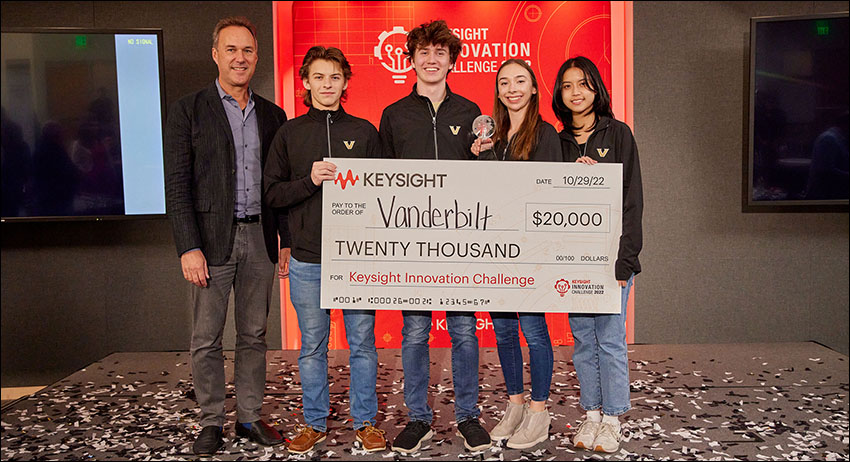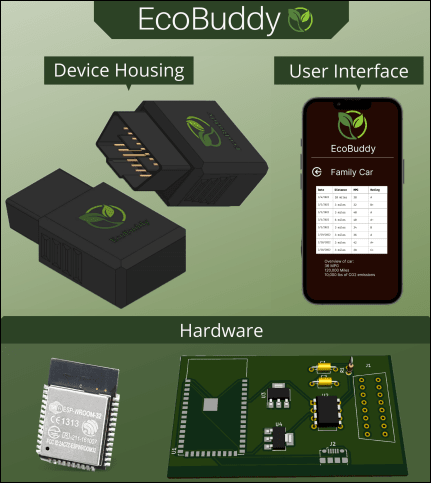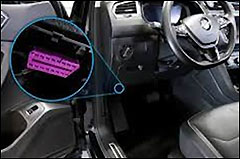
Four engineering juniors won $20,000 for EcoBuddy, a monitoring device that reports a car’s performance to its driver, and $10,000 in Keysight test equipment to Vanderbilt University.
 The team placed third in the Keysight Innovation Challenge 2022, sponsored by Keysight Technologies, a Santa Clara, California-based company that manufactures electronics test and measurement equipment and software. The challenge was to design an Internet-of-Things device that will help the world reach net zero by 2050 and required each team to be woman-led to encourage gender diversity in STEM.
The team placed third in the Keysight Innovation Challenge 2022, sponsored by Keysight Technologies, a Santa Clara, California-based company that manufactures electronics test and measurement equipment and software. The challenge was to design an Internet-of-Things device that will help the world reach net zero by 2050 and required each team to be woman-led to encourage gender diversity in STEM.
Team leader Meredith Hunter, electrical engineering; Gray Aycock, electrical engineering; Kaitlyn Phan, electrical engineering; and Berke Lunstad, computer science, presented EcoBuddy to judges in Santa Rosa October 29. They were among six finalists in a competition that attracted 52 entries from around the world.
EcoBuddy will connect to a car’s On-Board Diagnostics II (OBD2) port and retrieve speed, engine RPM, throttle position, and fuel consumption data and send it to a user’s phone. The data can be used to analyze driving habits and fuel efficiency.
Feedback on improving driving habits to increase fuel efficiency will be available in an app with graphically displayed vehicle statistics. A rating algorithm uses machine learning to give a driving score for each trip in terms of fuel efficiency and safety, pinpoint areas of improvement, and give tips to save money.
 EcoBuddy offers advantages over two notable types of OBD2 devices that share similar functionality: OBD2 emissions readers for state inspections and IoT fleet-monitoring systems. State testing is performed annually and does not offer continuous feedback or a view of driving habits. IoT fleet-monitoring systems provide continuous feedback intended for larger-scale management and do little to inform drivers of their carbon impact and aren’t intended to be used by individual drivers.
EcoBuddy offers advantages over two notable types of OBD2 devices that share similar functionality: OBD2 emissions readers for state inspections and IoT fleet-monitoring systems. State testing is performed annually and does not offer continuous feedback or a view of driving habits. IoT fleet-monitoring systems provide continuous feedback intended for larger-scale management and do little to inform drivers of their carbon impact and aren’t intended to be used by individual drivers.
If an electronics manufacturer were interested in EcoBuddy, the team reports the predicted cost of production per device is around $12.41.
Contact: Brenda Ellis, 615 343-6314
brenda.ellis@vanderbilt.edu